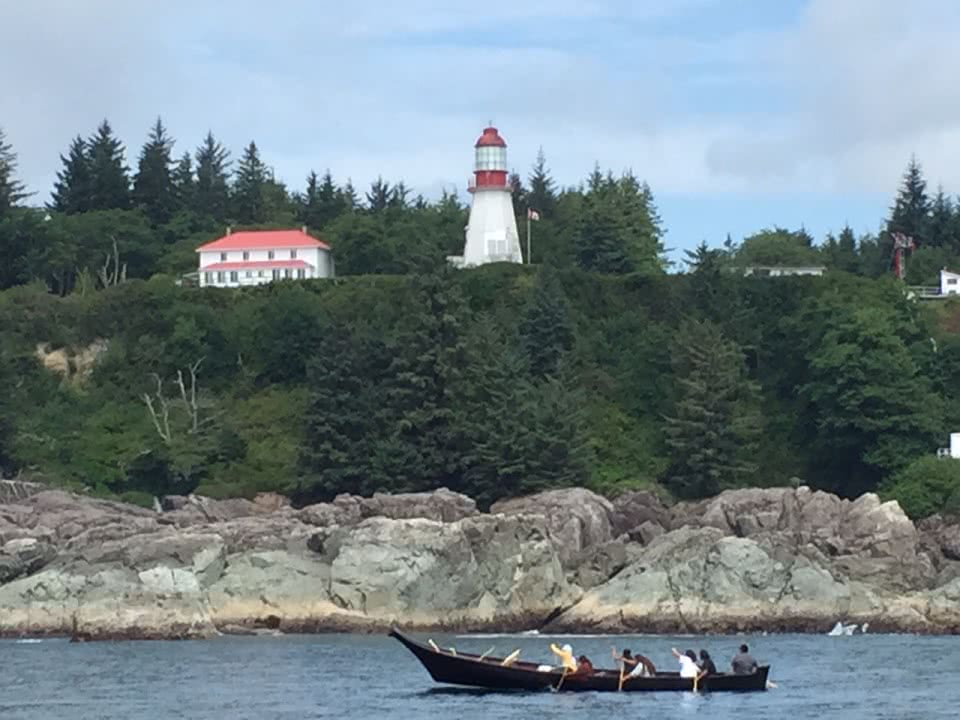A crew from WCMRC’s Vancouver Island base is supporting this summer’s Tribal Canoe Journey with a safety boat. The journey began on Sunday in Beecher Bay and proceeds to T’Souke, Pacheedaht, Ditidaht, Huu-Ay-Aht, Ucluelet, Tla-O-Quiaht, Kelthsmaht and will end in Ahousaht. WCMRC’s Burrard Cleaner No. 11 will accompany the paddlers and provide support if required.
This year, instead of one host nation the journey is hosted by the Ahousaht First Nation, on the west coast of Vancouver Island; the Lower Elwha Klallam Tribe, near Port Angeles; the Sliammon First Nation at Campbell River, B.C.; and the Semiahmoo First Nation in Surrey, B.C.
The Canoe Journey is a considerable logistical and financial undertaking. Planning and fundraising takes at least a year, and some host nations have installed roads, developed camping areas and parks, and built buildings to accommodate the festivities and thousands of guests. The host nation also hosts breakfast and dinner each day for all guests, and closes that year’s Canoe Journey with a potlatch.
Canoe families – those in the canoes, as well as support crew and family members – travel, sometimes up to three weeks, from their territories to the host territory, visiting indigenous nations along the way to participate in traditional protocols and share languages, songs, dances, and traditional foods. Once all canoes arrive at the final destination, a weeklong celebration follows.
Tribal Canoe Journeys is a celebrated event for the Indigenous peoples of the Pacific Northwest Coast. Nations from the coast of Alaska, British Columbia, and Washington state participate every year in these Tribal Canoe Journeys. These are a sequence of canoe journeys taken up by canoe families, nations, and groups who travel in ocean-going canoes, either authentic replicas of traditional canoes, made out of solid cedar logs or various replicas using more modern techniques and materials.

